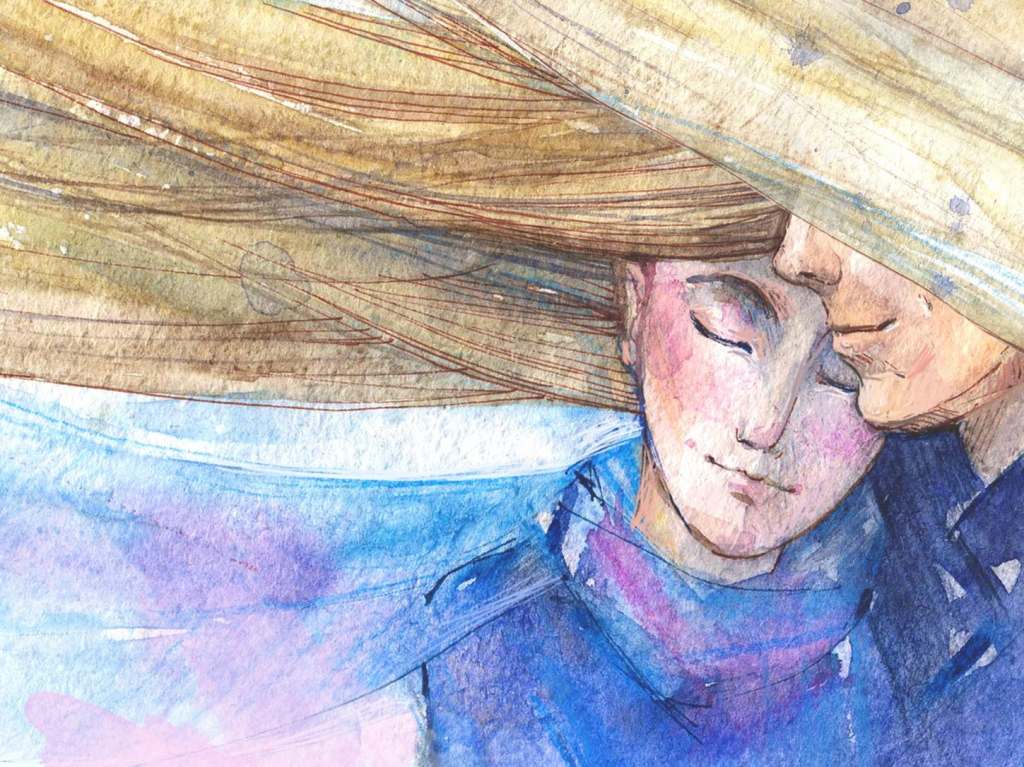Tokyo Weekender’s series TW Creatives feature various works by Japan-based writers, photographers, videographers, illustrators and other creatives in a bid to provide one additional platform for them to exhibit their talent. The works submitted here belong entirely to the creators — Tokyo Weekender only takes pride in being one of their most passionate supporters!
Shiruku
Amy shook her umbrella at the door, then fought her way along the bar to the back of the room. Half a dozen men sat at the counter, already filling the tiny space with their clutter of raincoats and briefcases, the musky scent of their day-old sweat, and the buzz of their beer-talk. This early evening sound was always a bright, high thrum – an upbeat rhythm of expectant anticipation. Then came the low notes with the long exhale; the collective sigh of relief at the end of another long, bleached-out day.
She sat down at the end of the counter, on her usual stool under the slope of the staircase. Nori nodded to her and took a tumbler from the shelf. He held up the glass and waited for confirmation before setting up her first whisky, then placed a bowl of rice crackers in front of her, and a fresh, cold towel.
Amy cooled her wrists with the towel, then ran her finger down the outside of the whisky glass, tracing patterns in the condensation, anticipating the fire of the spirit and the snap and pop of the ice.
Each evening she watched the groups of salarymen come and go: dark suits, black shoes, white shirts. They unfastened the top buttons of their shirts as they took their seats, yanked their ties undone as they lifted their glasses, shouted kanpai, and downed their first cold beer. Nori would fetch bowls of ramen from the kitchen, and after they’d eaten they would order a whisky. Then another. Eventually they would stagger out into the night and a new group would tumble in. Amy watched them all, but she was only looking for one.
His name was Koji, and he worked in a store down the road from the bar. She had been there to buy writing paper one afternoon and he had opened the cabinets to show her the exquisite handmade notebooks, the inkstones and the lacquered pens. He lifted each item gently from the display case and presented it to her with both hands; offering everything up like a series of precious gifts. There was a tautness to him, a precision in everything he did, underlined by a supple grace. He carried himself like a dancer.
When he handed Amy the receipt for her paper, she read his name at the bottom of the slip.
‘Thank you, Koji. Arigato gozaimasu.’
She went into the store again the following week to buy pens and a leather notebook. When she left she handed him a card for Nori’s bar that she had slipped into her purse the night before. She slid it across to him on the polished desk and as he picked it up their fingertips touched.
‘Do you know it?’ she asked, pointing across the street. ‘You can find me there most evenings.’
He bowed slightly and straightened the card with the tips of his fingers, aligning it with the edge of the desk. After she left, Amy wondered if he’d understood. He had said very little to her in English when he’d served her and she had tried to answer him in Japanese. She was suddenly unsure. Toby claimed you needed two thousand words to be able to converse properly in a foreign language, and despite the best efforts of her language teacher, Amy had only managed to retain three hundred and seventy-nine words of Japanese. And now, for every new word that she added to her total, she would forget one of the old words.
Whether he had understood or not, two days later Koji came to the bar on his way home. He sat by the window looking out into the street but he didn’t acknowledge Amy, even though she was certain he had seen her when he walked in. He drank a single beer, and then stood up to leave. She thought to follow him, to watch him stride up the street ahead of her, square-shouldered and slender-hipped. But she didn’t. And now another ten days had passed and she still couldn’t shake him out of her head: the raven-gloss of his hair, the fullness of his lower lip.
In the bar she always sat behind the armor of her newspaper, yet she scarcely read it. Nori usually talked to her when there was a lull between customers. His English was good, and although Amy thought she’d told him very little, whisky by whisky, late in the evening, Nori had pieced together the story of this lonely British girl. It appeared that her boyfriend, Toby, had dragged her to Kyoto in the glittering wake of his career, and then left her to her own devices. She made excuses for him: how busy he was at work, and how busy she was with her Japanese classes and her calligraphy lessons. Yet Nori knew that Toby left her alone most evenings whilst he entertained his clients. And he could see that she was sad.
Occasionally one of the customers would say something to Amy, and Nori would translate it into English for her. If it was unrepeatable, then he made something up; he thought of something kinder. Sometimes they simply commented that she looked sad, but Nori never told her that.
‘This guy says your hair is like silk,’ he said, tonight. She looked up from her book. It was Koji. He sat down on the next stool, twirling a coin between his fingers. When she smiled in acknowledgment, he reached out and touched her hair lightly.
‘Shiruku,’ he said, nodding.
‘Shiruku,’ she repeated. Word number three hundred and eighty. He grinned and said something else that she didn’t understand.
When Nori returned to translate, she understood that Koji had asked if she wanted another whisky. She thanked him, and Nori lined up two fresh glasses.
Koji finished his drink in two mouthfuls, and each time he lifted his glass she noticed the defined muscle of his forearm. He spoke to her again. It was another question, but all she recognized was the final part – that he was asking her if she’d understood.
‘Wakarimasu ka?’
She shook her head and looked questioningly at Nori.
‘He wants to know if you’d like to go to another bar.’
Amy finished her whisky, then slid off her stool and held out her hand. Koji blushed and indicated that she should walk ahead. The rain had stopped, and beyond the bright spill of neon signs, Koji guided her down a quiet side street where lantern light from a tea house danced on the cobbles. The red sleeve of a kimono disappeared behind a sliding door, and two voices whispered to each other. There was a promise of something magical in the glistening shine of the wet street.
As they walked, Amy asked Koji questions. He liked cats and The Beatles. He wrote haiku. And knowing these three things was enough.
When they turned into the next street, he took her hand. ‘Ie,’ he said, followed by a sentence she couldn’t fathom. He pointed up at an apartment block. Why was he saying ‘no’? Then she remembered. ‘Ie’ was also the word for home.
‘Hai,’ she said softly.
They took the lift to his two-room apartment on the fifteenth floor. From the window, Amy could see the lights of the city reflected in the bay like scattered embers. She asked Koji to turn off the lamp so there was no reflection on the glass, and in the darkness of his room they became each other; pale and translucent as bone, and nothing lost in translation.
Author’s Profile

Amanda Huggins is an award-winning travel writer, author and poet. Her debut novella, All Our Squandered Beauty, published in January 2021. Amanda grew up on the north-east coast of England, moved to London in the 1990s, and now lives in West Yorkshire. She has made several trips to Japan over the last fifteen years and has a great interest in all aspects of Japanese culture and lifestyle. She is also a voracious reader of Japanese literature in translation and a big fan of Japanese cinema. She worked in engineering for twenty years and is also a creative writing tutor and competition judge. You can pre-order All Our Squandered Beauty from Victorina Press here and Amanda‘s short story collections, Separated From the Sea and Scratched Enamel Heart are available online from Amazon, Waterstones, Barnes & Noble etc. Follow her on Twitter @troutiemcfish
Read more of Huggins’ fiction work here:

Want to be featured next? Write us at [email protected]









